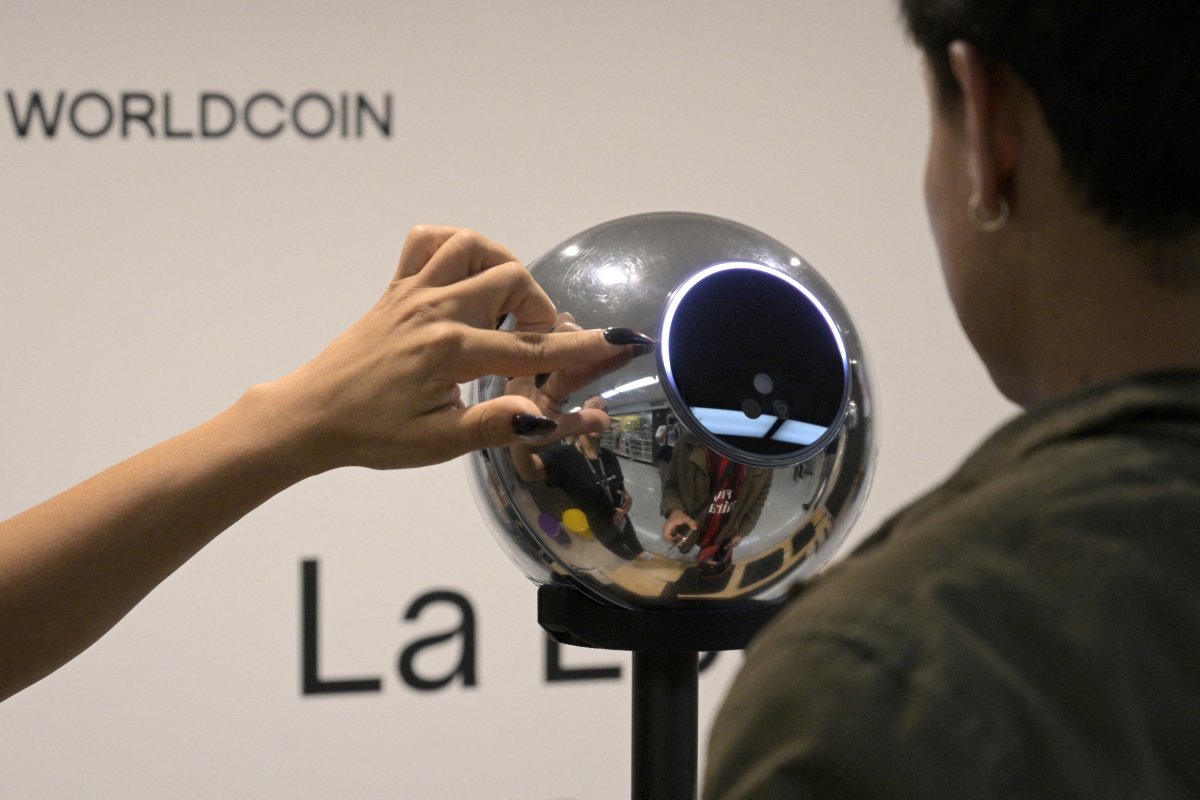Worldcoin, a cryptocurrency initiative co-founded by OpenAI CEO Sam Altman, has recently faced significant regulatory challenges in Indonesia. The Indonesian Ministry of Communication and Digital Affairs (Komdigi) suspended Worldcoin's operations due to concerns over data privacy and regulatory compliance. This move reflects a growing global apprehension regarding biometric data collection and its implications for user privacy.
Worldcoin's Biometric Data Collection Practices
Worldcoin's primary objective is to create a unique digital identity system by scanning individuals' irises using a device known as the "Orb." In exchange for participating in the iris scan, users receive cryptocurrency tokens. This approach aims to establish a secure method of verifying human identity in the digital realm, especially in an era increasingly dominated by artificial intelligence.
However, the method of collecting sensitive biometric data has raised concerns among privacy advocates and regulatory bodies. The promise of financial incentives in return for personal data has been criticized as potentially exploitative, particularly in regions with less stringent data protection laws.
Regulatory Response in Indonesia
In early May 2025, Komdigi announced the suspension of Worldcoin's operations in Indonesia. The ministry cited irregularities in the company's registration process and potential violations of electronic system regulations. Specifically, concerns were raised about the involvement of local entities PT. Terang Bulan Abadi and PT. Sandina Abadi Nusantara, which were facilitating Worldcoin's activities without proper authorization.
The suspension includes the freezing of Worldcoin's electronic system operator registration certificate (TDPSE), effectively halting all iris scanning and related activities in the country. Komdigi emphasized the need to protect citizens' personal data and ensure that any digital identity initiatives comply with national laws and regulations.
Global Scrutiny and Ethical Implications
Indonesia is not alone in its apprehension toward Worldcoin's operations. Countries like Kenya, Spain, and Hong Kong have also taken measures against the company due to similar concerns. In Kenya, for instance, the High Court ordered Worldcoin to delete all biometric data collected from its citizens within seven days, citing violations of the Data Protection Act.
These global responses highlight the ethical dilemmas associated with collecting biometric data, especially when financial incentives are involved. Critics argue that such practices may exploit vulnerable populations and lack sufficient transparency regarding data usage and storage.
Worldcoin's Stance and Future Prospects
Worldcoin maintains that its data collection methods are secure and that biometric images are not stored but converted into encrypted codes. The company asserts that its goal is to provide a decentralized and privacy-preserving digital identity system. Despite these assurances, the lack of clear regulatory frameworks in many countries poses challenges to the project's expansion.
The suspension in Indonesia serves as a critical reminder of the importance of adhering to local laws and respecting user privacy. For Worldcoin to succeed globally, it must engage transparently with regulators and address the ethical concerns surrounding biometric data collection.
Conclusion
The suspension of Worldcoin's iris scanning operations in Indonesia underscores the complex interplay between technological innovation and regulatory oversight. As digital identity systems become more prevalent, ensuring that such initiatives prioritize user privacy and comply with local laws is paramount. Worldcoin's experience in Indonesia may serve as a case study for other countries grappling with similar issues, highlighting the need for clear regulations and ethical considerations in the age of biometric data collection.
Read More






 Wednesday, 04-02-26
Wednesday, 04-02-26







